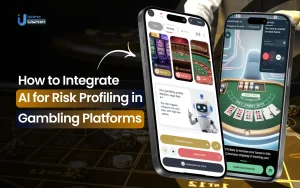Sustainable and Eco-Friendly Practices in the Slot Gaming Industry

Let’s be honest—when you think of slot gaming, “eco-friendly” probably isn’t the first term that comes to mind. But here’s the deal: the industry’s changing. From digital platforms to energy-efficient casinos, sustainability is creeping into the world of spinning reels and jackpots. And honestly? It’s about time.
Why Sustainability Matters in Slot Gaming
You might wonder why an industry built on flashy lights and digital screens should care about its carbon footprint. Well, consider this: traditional casinos consume massive amounts of energy—think neon signs, air conditioning, and rows of machines running 24/7. Online platforms? They’ve got server farms guzzling power. The good news? Both sectors are waking up to greener alternatives.
The Shift to Digital: A Double-Edged Sword
Online slots have already cut down on physical waste—no paper tickets, no plastic coins. But here’s the catch: data centers powering these games aren’t exactly light on energy. That said, some operators are now using renewable energy to run servers or optimizing code to reduce processing loads. Small steps, sure, but they add up.
Green Innovations in Land-Based Casinos
Brick-and-mortar casinos aren’t being left behind. A few trailblazers are proving that sustainability and slot machines can coexist. Here’s how:
- LED Lighting: Swapping out old-school bulbs for LEDs cuts energy use by up to 80%—and they last longer.
- Solar-Powered Casinos: Some venues now run partly on solar energy, slashing reliance on fossil fuels.
- Smart HVAC Systems: Motion sensors and AI-driven climate control reduce wasted energy in massive gaming floors.
The Rise of “Green Slot Machines”
Manufacturers like Aristocrat and IGT are designing machines with lower power consumption. Think sleep modes during inactivity, efficient processors, and even recyclable components. It’s not just about saving the planet—it saves casinos money too.
Sustainable Practices in Game Development
Behind every slot game is a team of developers—and some are rethinking their workflows. A few studios now:
- Use cloud-based collaboration to cut down on office energy use
- Offset carbon emissions from server usage
- Design games with lighter graphics to reduce device strain (and energy drain)
Funny enough, these tweaks often lead to smoother gameplay. A win-win.
Player Habits and Eco-Conscious Gaming
Here’s something players rarely consider: how their habits impact sustainability. Streaming high-definition slots on mobile? That burns data—and energy. Some operators now offer “eco modes” with simplified graphics or reminders to close idle sessions. Others incentivize responsible play with loyalty points for choosing green options.
The Paperless Future of Payments
Digital wallets and cryptocurrencies are reducing the need for paper receipts and plastic cards. Sure, crypto has its own environmental debates—but some platforms use energy-efficient blockchains to process transactions.
Challenges and Roadblocks
It’s not all smooth sailing. The industry faces hurdles like:
| Challenge | Why It’s Tricky |
| Legacy Systems | Older casinos can’t easily retrofit thousands of machines |
| Cost Barriers | Green tech often requires upfront investment |
| Player Expectations | Bright lights and flashy animations are part of the appeal |
Still, the tide’s turning. Younger players especially value eco-conscious brands—so sustainability could soon be a competitive edge.
What’s Next? The Future of Green Gaming
Imagine slot tournaments where part of the prize pool funds reforestation. Or VR casinos that eliminate physical spaces altogether. Some operators are already testing these ideas. The industry won’t go green overnight—but the reels are spinning in the right direction.
At the end of the day, sustainability in slot gaming isn’t about perfection. It’s about progress. And that’s a jackpot worth hitting.






